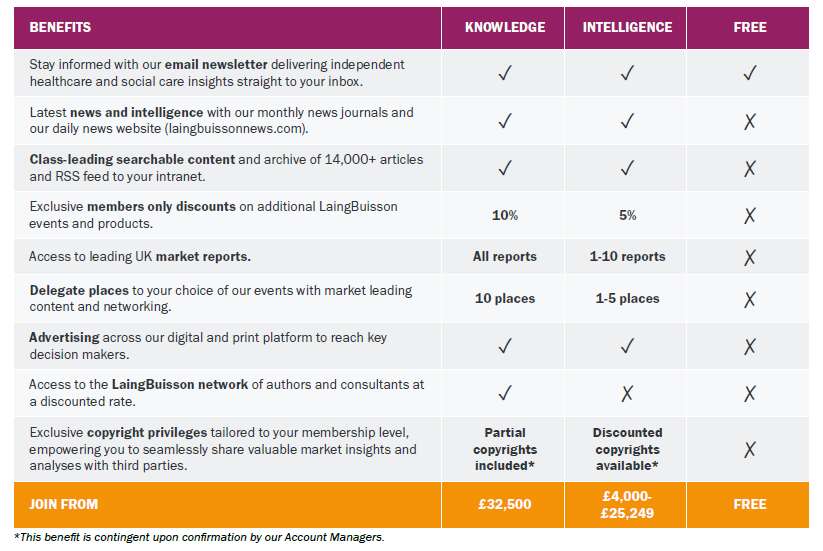William Laing proposes novel solution to long-term care cost sharing
William Laing has today published his ‘Personal Asset Protection Guarantee’ (PAPG) White Paper. Under this proposal individuals are guaranteed to keep about three-quarters of their personal assets in the event of their needing residential care in their old age.
The White Paper deals with the question of how the cost of long term care should be divided between the state and those individuals (mainly property owners) with care needs who have the resources to pay for themselves. The PAPG proposes a novel mechanism which defines individuals’ eligibility for council support for residential care in terms of the percentage of each individual’s assets which has been spent down since being assessed as needing care.
William Laing argues that the PAPG will be more efficient and equitable as well as easier to understand than the combination of threshold extension and care cost cap. It will also offer peace of mind to all property owners (who account for more than 70% of the older population at risk of entry to a care home), not just those in ‘spending down’ sight of any feasible threshold such as the £100,000 mooted by the Government at the time of the June election.
Other benefits of the PAPG proposal include lower assessment, care management and administrative costs since it will not require the monitoring of individuals’ care costs. It also means there is less risk of ‘payor shift’ creating instability in the commercial care home sector in less affluent areas of the country.
William Laing said:
“For two decades successive governments have struggled to arrive at a comprehensive new settlement for sharing long-term care costs between individuals and the state. In that time, the forecast ageing population has become a reality. People need a straightforward and effective mechanism which allows them to plan for their long-term care without worrying this will become a burden for their families, either before or after their death. Insurers need to be encouraged that there are real opportunities to build long term care insurance products around whatever scheme is put forward by government. And government needs a scheme which is inexpensive to administer and monitor.
“The novel approach that I am proposing in the PAPG offers all of these possibilities. It requires the value of an individual’s assets to be assessed by their local council at the time they are found to need care and the individual will be guaranteed that once a certain percentage of their assets have been spent down, they will be eligible for support from the council, subject to income related user charges. My calculations indicate that a PAPG that allows individuals to keep 73% of their assets would cost the state the same as an asset threshold of £100,000 and a lifetime care cost cap of £72,000.”
To read the full report, click here.







